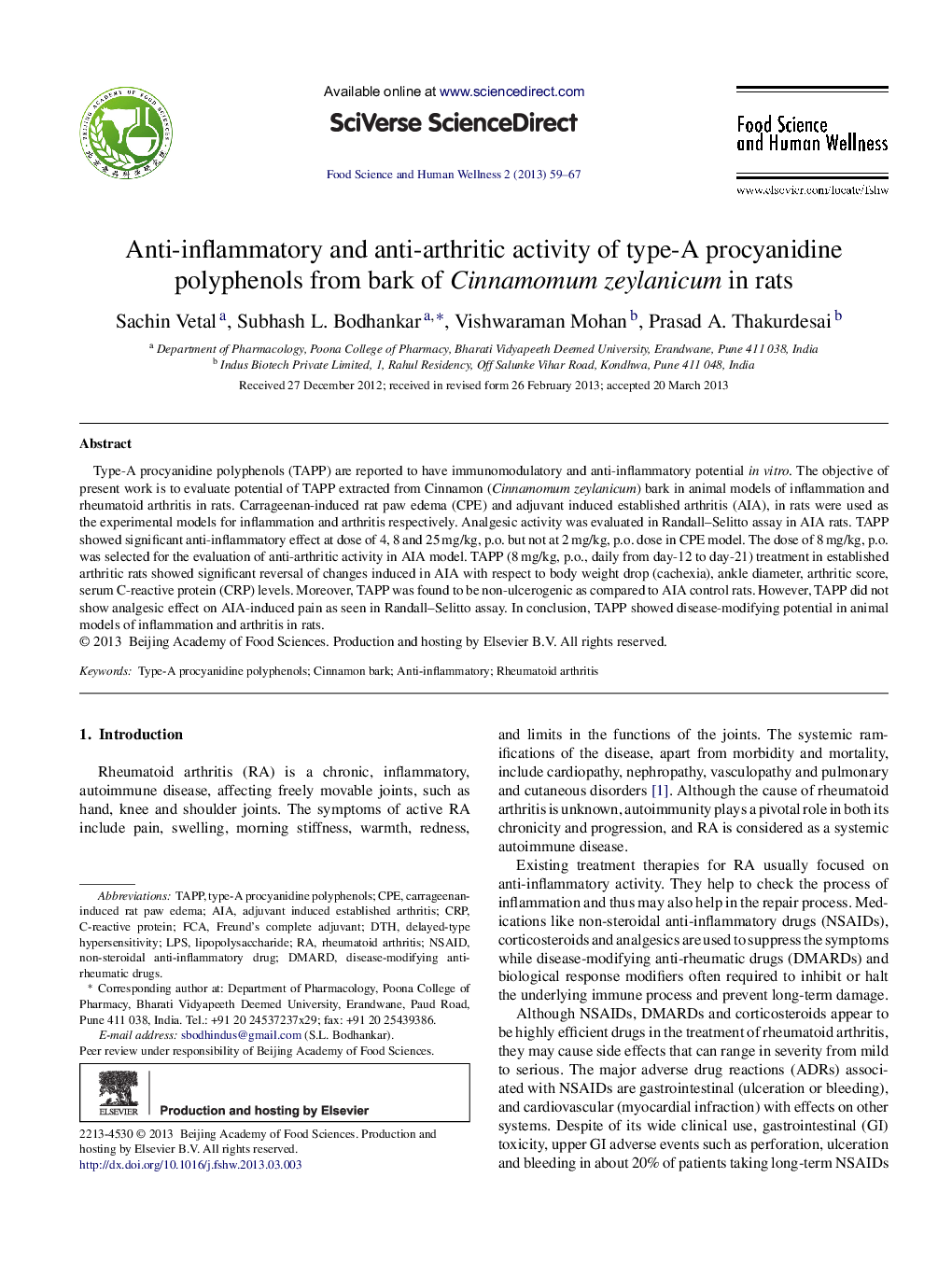| Article ID | Journal | Published Year | Pages | File Type |
|---|---|---|---|---|
| 2688502 | Food Science and Human Wellness | 2013 | 9 Pages |
Type-A procyanidine polyphenols (TAPP) are reported to have immunomodulatory and anti-inflammatory potential in vitro. The objective of present work is to evaluate potential of TAPP extracted from Cinnamon (Cinnamomum zeylanicum) bark in animal models of inflammation and rheumatoid arthritis in rats. Carrageenan-induced rat paw edema (CPE) and adjuvant induced established arthritis (AIA), in rats were used as the experimental models for inflammation and arthritis respectively. Analgesic activity was evaluated in Randall–Selitto assay in AIA rats. TAPP showed significant anti-inflammatory effect at dose of 4, 8 and 25 mg/kg, p.o. but not at 2 mg/kg, p.o. dose in CPE model. The dose of 8 mg/kg, p.o. was selected for the evaluation of anti-arthritic activity in AIA model. TAPP (8 mg/kg, p.o., daily from day-12 to day-21) treatment in established arthritic rats showed significant reversal of changes induced in AIA with respect to body weight drop (cachexia), ankle diameter, arthritic score, serum C-reactive protein (CRP) levels. Moreover, TAPP was found to be non-ulcerogenic as compared to AIA control rats. However, TAPP did not show analgesic effect on AIA-induced pain as seen in Randall–Selitto assay. In conclusion, TAPP showed disease-modifying potential in animal models of inflammation and arthritis in rats.
